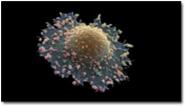4.2 Summary
Glycogen metabolism is controlled by two enzymes, glycogen synthase (mediating glycogen synthesis) and phosphorylase (mediating glycogen breakdown).
Three pathways converge in the regulation of glycogen synthase: cAMP/PKA and GSK-3β are negative regulators, whereas ISPK/PP1G positively regulate the activity of glycogen synthase.
Insulin and adrenalin have opposite effects on glycogen synthesis: insulin promotes glycogen synthesis by activating ISPK/PP1G and by inhibiting GSK-3β by the PI3K/PKB pathway, whereas adrenalin inhibits glycogen synthase by the cAMP/PKA pathway.
Three pathways converge in the activation of phosphorylase by phosphorylase kinase: Ca2+ and PKA activate phosphorylase kinase, whereas PP1 is a negative regulator.
Acetylcholine, adrenalin and glucagon promote glycogen breakdown, whereas insulin inhibits it.
Acetylcholine in skeletal muscle and adrenalin in liver activate phosphorylase kinase by a common mechanism, an increase in cytosolic Ca2+, although the effect of ACh is by voltage-dependent channels and that of adrenalin by IP3-gated Ca2+ channels.
Adrenalin in muscle and glucagon in liver activate phosphorylase kinase by a common mechanism, namely an increase in cytosolic cAMP and subsequent activation of PKA. In addition, PKA further activates phosphorylase kinase in skeletal muscle by inhibition of PP1 either directly or indirectly.
Insulin has an opposite effect to adrenalin on glycogen breakdown, namely the inhibition of glycogen breakdown by activation of the phosphorylase kinase inhibitor, PP1.
